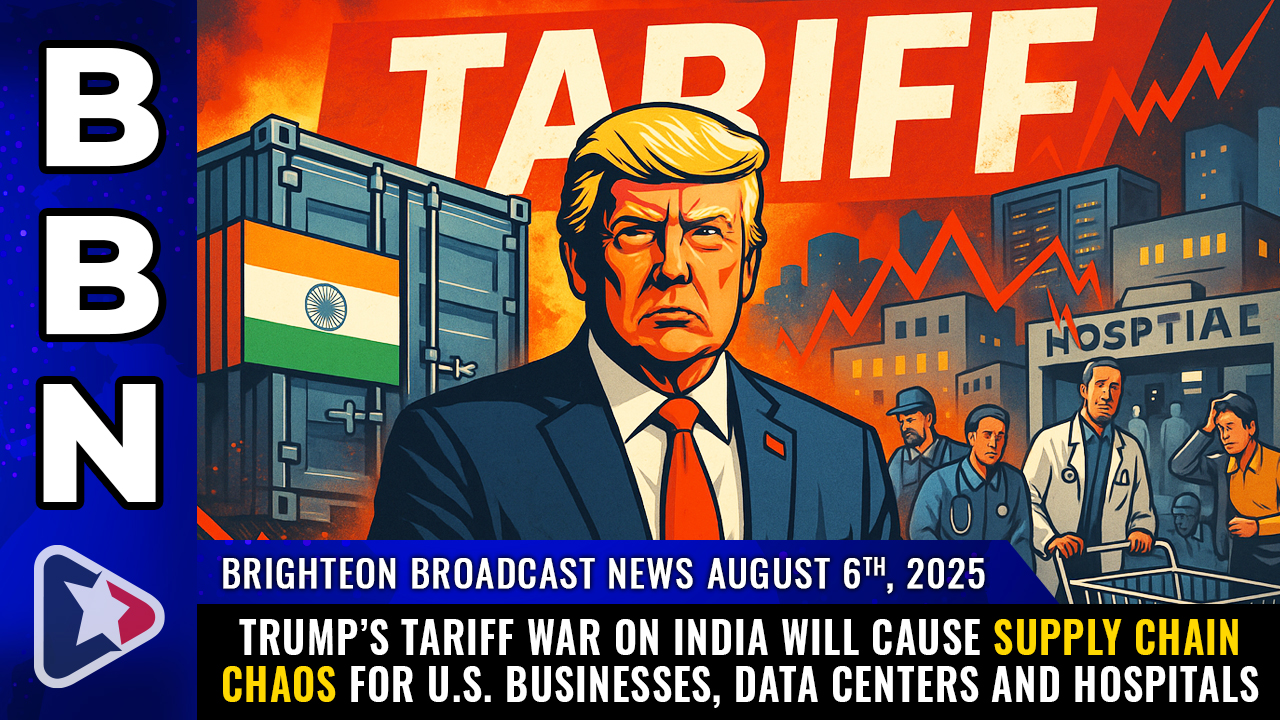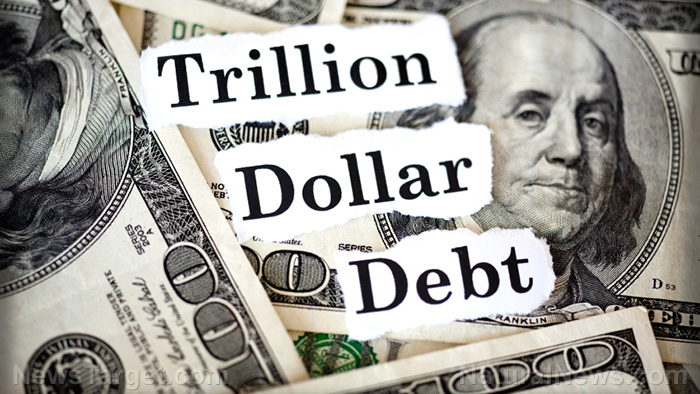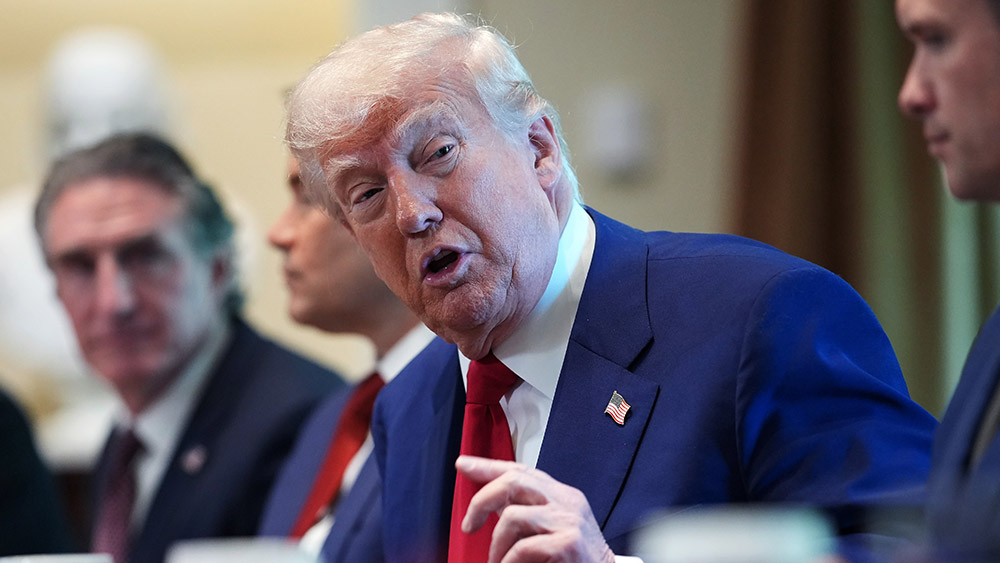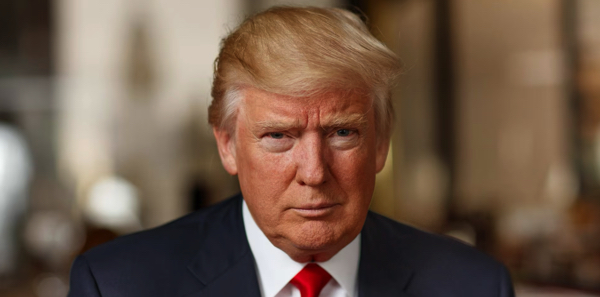BMW profits plunge amid U.S. tariffs, weak demand and Chinese competition
08/04/2025 / By Laura Harris
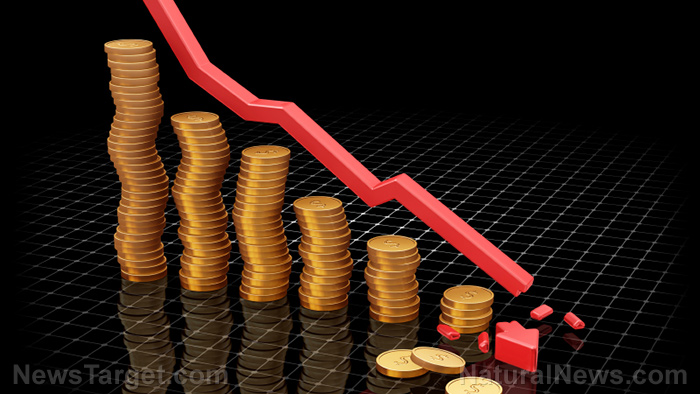
- BMW reported a net profit of €4 billion ($4.6 billion) for the first half of 2025, marking its third straight first-half decline, due to U.S. tariffs, softening global demand and rising competition from Chinese EV makers.
- While BMW didn’t specify exact tariff losses, it warned duties, including a 31 percent EU tariff on Chinese-made electric Minis, could cut its automotive profit margin by 1.25 percentage points, costing billions.
- BMW’s Spartanburg, South Carolina plant, which produces half of its U.S. vehicle sales, has helped cushion the impact of American tariffs, though trade tensions remain a major threat.
- A Financial Times-cited study estimates Germany’s major carmakers will lose over €10 billion ($11.6 billion) in cash flow this year due to tariffs. Mercedes-Benz and Volkswagen are facing the steepest declines.
- U.S. tariffs (25 percent on vehicles, 50 percent on materials) and rising supplier costs are squeezing margins across the German auto industry, threatening the health of Europe’s largest manufacturing sector.
German automotive heavyweight BMW reported a sharp drop in first-half profits as fresh US tariffs, softening global demand and intensifying competition from China continue to rattle the European auto sector.
According to a financial report released on Thursday, July 31, the company posted a net profit of €4 billion ($4.6 billion) for the first six months of 2025, down 29 percent compared to the same period last year, marking its third consecutive first-half decline.
BMW did not specify the total tariff-related costs incurred in the first half, but it warned that trade barriers would continue to weigh on profitability. The automaker expects duties, including the recently imposed 31 percent EU tariff on electric Minis imported from China, to lower its automotive profit margin by roughly 1.25 percentage points this year, potentially resulting in a multibillion-euro cost.
BMW’s strong production presence in the U.S. has helped the company soften the impact of American tariffs. The automaker builds about half of the vehicles it sells in the U.S. at its Spartanburg, South Carolina plant and exports another 200,000 vehicles from there to global markets.
However, trade policy continues to pose challenges. While EU-U.S. talks could reduce import tariffs on American vehicles entering Europe from 10 percent to zero, such a deal would do little to offset the 15 percent U.S. tariff on European vehicle imports.
China remains another pain point for BMW, particularly as domestic EV rivals grow increasingly competitive. Nonetheless, the company has maintained its full-year outlook, aiming to match last year’s €11 billion ($13 billion) in pre-tax profit. With €5.7 billion ($6.5 billion) already recorded in the first half, BMW said it remains on track.
Earlier sales data suggested that BMW may be weathering the industry slowdown more effectively than its competitors. Deliveries held steady at just over 1.2 million vehicles in the first six months, outperforming Mercedes-Benz and Audi. However, revenue fell eight percent to €67.7 billion ($77.3 billion).
German carmakers face €10 billion hit from U.S. tariffs
According to a study cited by the Financial Times, Germany’s top automakers are bracing for more than €10 billion ($11.6 billion) in lost cash flow this year, as the fallout from aggressive U.S. trade tariffs compounds an already volatile environment marked by rising costs, slumping sales and mounting competition from China.
The impact of new U.S. tariffs has become a financial body blow to Germany’s export-driven auto industry. The U.S. is Germany’s largest foreign market, but the sector has been among the hardest hit by President Donald Trump’s latest round of protectionist measures.
In March, the U.S. administration slapped a 25 percent tariff on foreign-made vehicle imports. Following months of high-stakes negotiations, the EU and U.S. reached a partial trade agreement on Sunday. The deal lowers auto tariffs to 15 percent but maintains steep 50 percent duties on key industrial materials like steel and aluminum.
The financial toll is steep, just like what BMW claimed. Mercedes-Benz, which reported nearly $11 billion in cash flow last year, is expected to see that figure fall to just $3 billion in 2025, according to data from analytics firm Visible Alpha.
Volkswagen’s cash flow forecast has been cut to $3.8 billion, down from $9.5 billion. The company confirmed on July 25, that U.S. tariffs have already cost the company over $1 billion in the first half of the year and warned that the figure could grow as trade restrictions and supply chain pressures persist. (Related: Volkswagen to close Audi Brussels branch due to sharp drop in EV demand.)
Parts suppliers, facing their own cost pressures, have passed on surging prices for imported components and raw materials – intensifying the strain on manufacturers’ profit margins.
Watch this clip from Next News Network as host Gary Franchi discusses BMW’s reaction to climate protesters vandalizing an iconic vehicle.
This video is from the News Clips channel on Brighteon.com.
More related stories:
EU plan to ban sales of gas, diesel vehicles by 2035 “no longer realistic,” warns BMW.
Europe’s electric vehicle mandates are killing their auto industry, and China is taking advantage.
Sources include:
Submit a correction >>
Tagged Under:
auto industry, automakers, BMW, Bubble, Collapse, demand, electric cars, electric vehicles, EV, future tech, market crash, Mercedes-Benz, power, profits, risk, robocars, tariffs, Volkswagen
This article may contain statements that reflect the opinion of the author
Get independent news alerts on natural cures, food lab tests, cannabis medicine, science, robotics, drones, privacy and more from NewsTarget.com
Get independent news alerts on natural cures, food lab tests, cannabis medicine, science, robotics, drones, privacy and more from NewsTarget.com
RECENT NEWS & ARTICLES
COPYRIGHT © 2017 DEBT COLLAPSE NEWS







